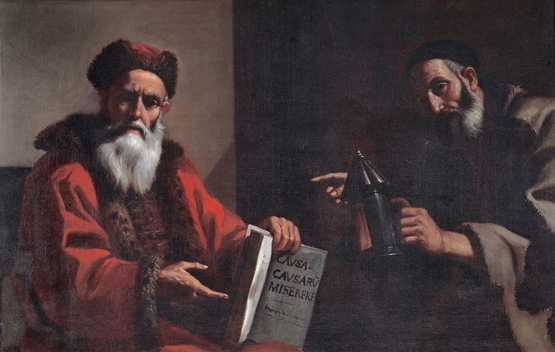Interpretations
The Hellenistic Jewish philosopher Philo in the early 1st century AD wrote about the destruction of Atlantis in his On the Eternity of the World, xxvi, in a longer passage allegedly citing Aristotle's successor Theophrastus:
... And the island of Atalantes which was greater than Africa and Asia, as Plato says in the Timaeus, in one day and night was overwhelmed beneath the sea in consequence of an extraordinary earthquake and inundation and suddenly disappeared, becoming sea, not indeed navigable, but full of gulfs and eddies.
Some scholars believe Clement of Rome cryptically referred to Atlantis in his First Epistle of Clement, 20: 8:
The ocean which is impassable for men, and the worlds beyond it, are directed by the same ordinances of the Master.
Other early Christian writers wrote about Atlantis, though they had mixed views on whether it once existed or was an untrustworthy myth of pagan origin.
Aside from Plato's original account, modern interpretations regarding Atlantis are an amalgamation of diverse, speculative movements that began in the 16th century. Contemporary perceptions of Atlantis share roots with Mayanism, which can be traced to the beginning of the Modern Age, when European imaginations were fueled by their initial encounters with the indigenous peoples of the New World. From this era sprang apocalyptic and utopian visions that would inspire many subsequent generations of theorists.
